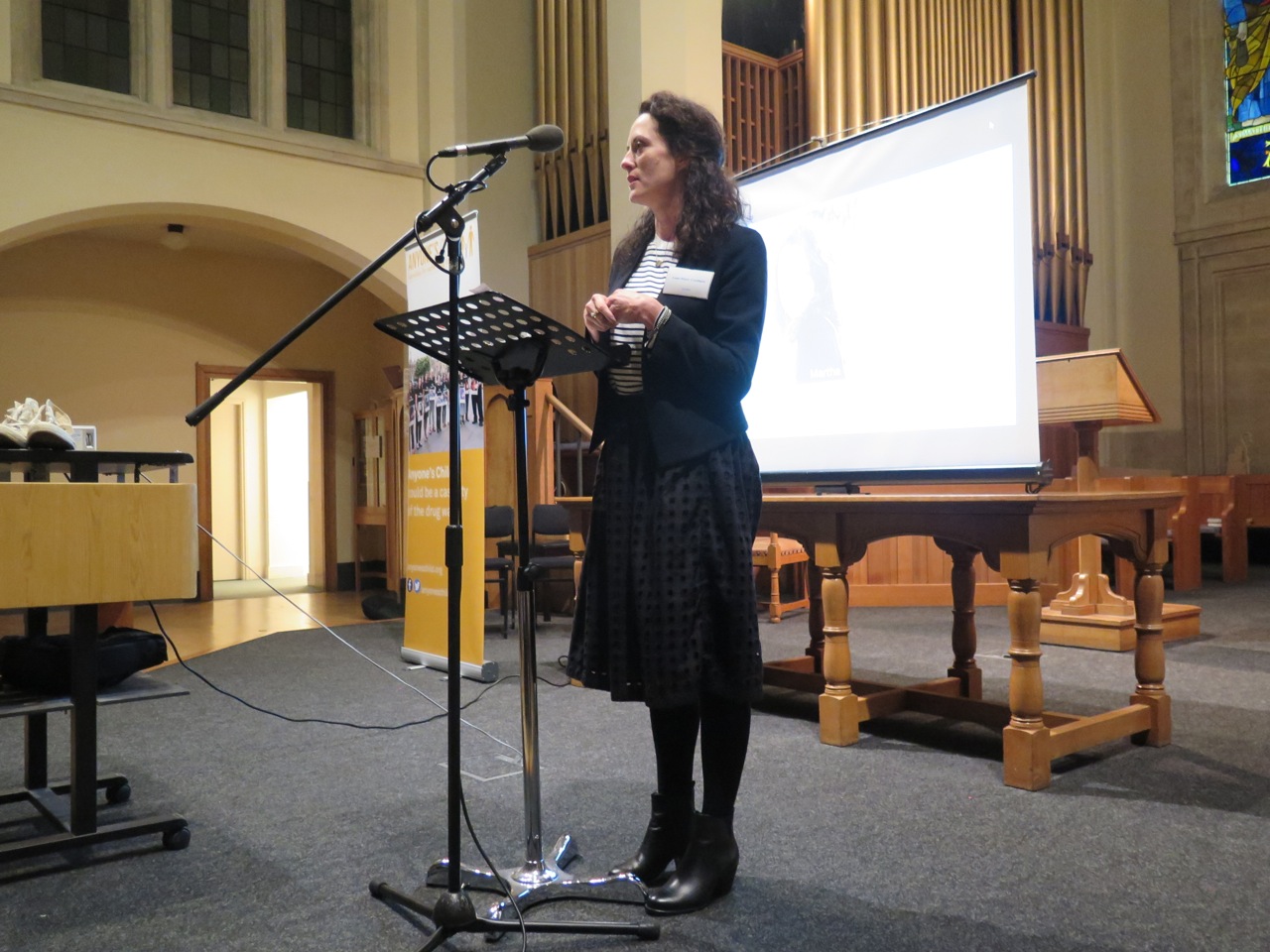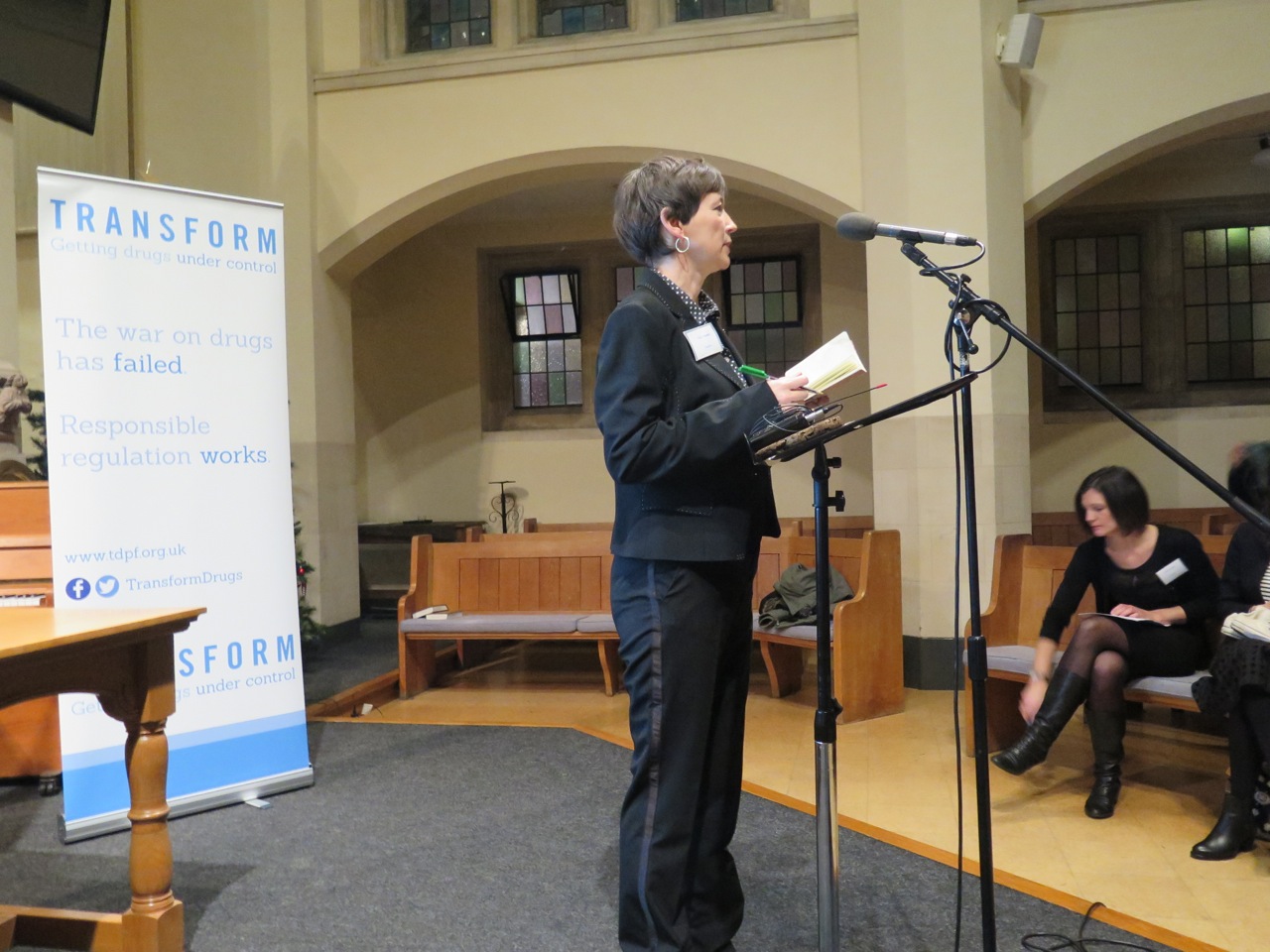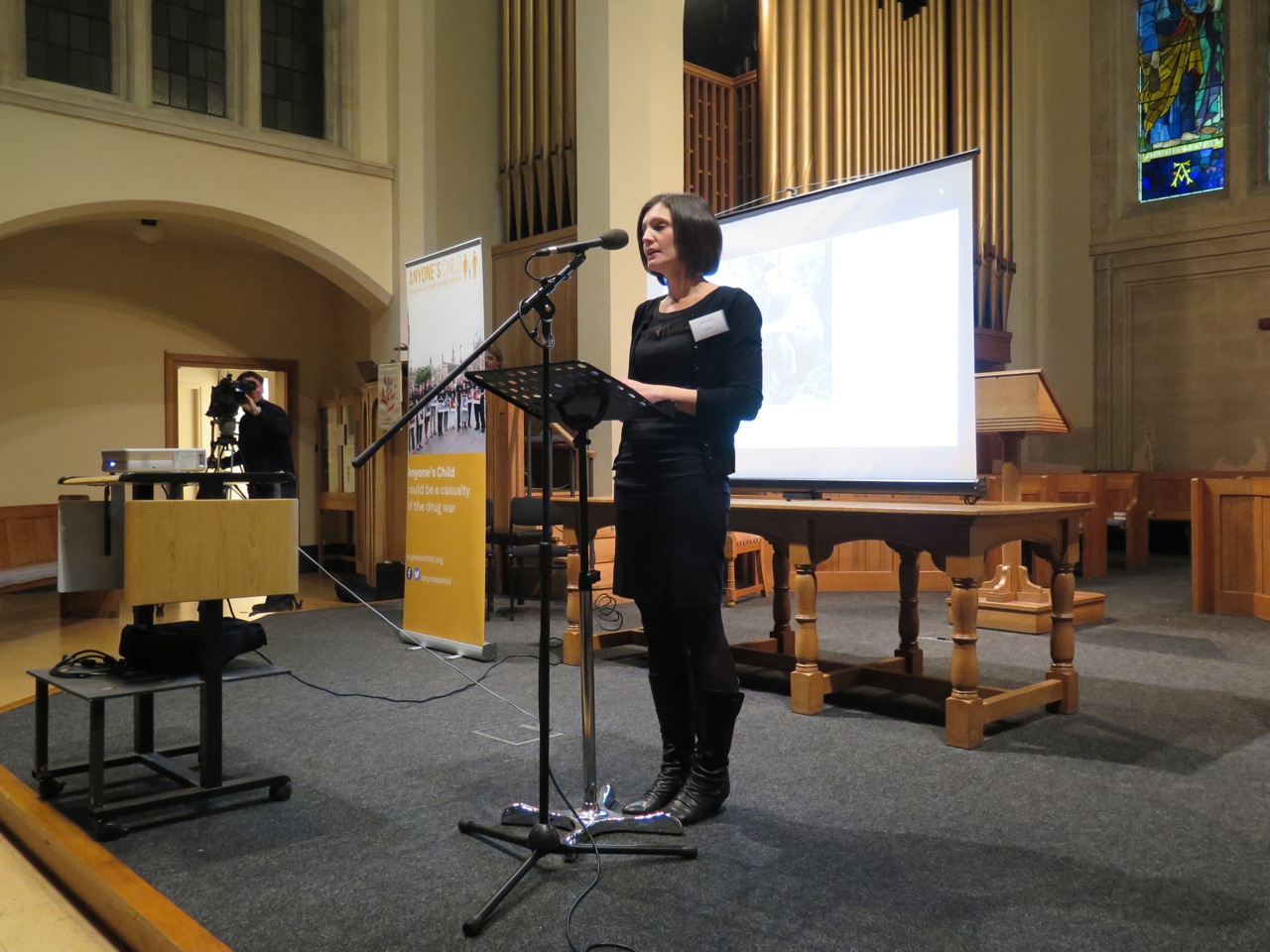On Thursday, December 3rd, a new and potentially very important campaign held its first public event in Bristol.
In a packed-out church hall (the original venue had to be upgraded due to overwhelming demand), Anyone’s Child launched what could prove to be a powerful new movement for drug law reform in the UK.
Originally launched by the Transform Drug Policy Foundation earlier this year, this event can be seen as the moment Anyone’s Child became a fully-fledged campaign of its own.
What sets this group apart from the myriad reform organisations and campaigns out there, is that it is fronted by the sort of people you might not necessarily expect to support less punitive drug laws – the mothers, fathers, brothers, and sisters of people whose lives have been tragically lost to drug use.
The testimony of these individuals, whose lives have been changed irreversibly by drugs, but who recognise that the real harm comes from treating people as criminals for their choices, gives a new perspective to the debate. Their real, painfully human stories of lost loves and ruined lives force us to confront the human cost of waging a war on drug users. These are the victims and casualties of that war.
The speakers at Thursday’s event included Anne-Marie Cockburn, the mother of 15-year-old Martha, who lost her life on the 20th of July 2013 after swallowing half a gram of MDMA that turned out to be 91% pure. Martha’s story has been widely reported on, but even now, two and a half years after her death and having read Anne-Marie’s profoundly moving and inspiring story in various publications – hearing her words and seeing the pain on her face was as emotional an experience as they come.
Anne-Marie was introduced to the audience by Nicky Saunter, the CEO of Transform, as “Martha’s mum”. This seemingly throwaway comment prompted thanks from Anne-Marie, who explained that this was not something she was used to being called anymore, and that she was still searching for a new label with which to replace it. Judging by the power of the words that followed, and the reactions of those in attendance, I’d say she’s still doing a great job of being a mum. Even if, as she would say, she is “not a practising one anymore”.
A powerful message shone through the obviously emotional and painful nature of Anne-Marie’s speech: drugs may have killed her daughter, but legal regulation and control could have saved her life.
Almost everything about the tragic events that led to Martha’s untimely passing would have been different, had MDMA been legal.
For a start, Martha was a child – at fifteen, she was too young to be able to purchase alcohol, a regulated and age-restricted drug, but had no problem obtaining the illegal ecstasy that would kill her. A legal market for drugs would naturally require ID, and even then, if someone below the legal age managed to get hold of a drug, its contents, purity, and potential harms would at least be known.
One of the most painfully ironic things about Martha’s story is that she was forced to do her own research into how to consume MDMA in the safest way. What she ended up with was a white powder of extraordinary purity for the black market. She thought she was doing the right thing, but it proved to be deadly.
As pointed out by Aimi Garidis, the British government currently spends £1.46 billion per year on punitive drug law enforcement. They only spend £7 million on education.
This approach not only makes drugs more dangerous and more widely available, it also leaves young people hopelessly ill-equipped should they make the choice to experiment as they so often do.
A constant theme running through the night’s speeches was shame. When Martha began to react badly to the MDMA she had consumed, her friends initially tried to lead her to a more secluded spot away from potential onlookers. They were ashamed of their drug use, and afraid of the consequences of being caught. No one can say for sure if it would have made a difference, but due in part to their reluctance to act, an ambulance was not called until two hours after Martha swallowed her half a gram. I say this not to place blame on Martha’s friends – they themselves are victims of prohibition, as much as anyone else.
Similarly, Aimi Garidis’ tale of how she lost her husband to drug use is a story of the shame and stigma caused by prohibition, ultimately taking another life. Chris died, aged 32, in February 2014, after years of silently battling a valium addiction which emerged as a consequence of undiagnosed mental illness.
This was not a bad man. Chris was a loving husband and father, an otherwise upstanding citizen only deemed a criminal because of his attempts to self-medicate an illness which is itself shrouded in stigma.
He was deeply ashamed of his addiction, and despite seeking help and managing to kick the habit for a time, he never truly received the help and support of the medical profession that he so obviously needed. Eventually he relapsed, bought valium from a black market street dealer, and died in a Barcelona hotel room.
As Aimi rightly pointed out, legalisation and regulation are not cure-alls. But they would undoubtedly save lives. No one can claim that the world is a better place for not having people like Chris and Martha in it.
The final speaker of the evening was not in fact an official member of the Anyone’s Child campaign. He is not a grieving family member, or even a current or former drug user. He, Neil Woods, is an ex police officer. After spending 14 years as an undercover drugs cop, manipulating user after user, betraying the trust of people who believed in him and needed his help, and often sending those people to prison, Neil eventually came to the realisation that this ‘war on drugs’ is in fact a war on vulnerable people being waged by the state through people like him.
Neil’s intentions were of course perfectly reasonable: like countless others, he truly believed that he was making the world a safer place for everyone, especially children, by getting criminals off the streets. But what he came to realise over the years, was that no matter how hard he worked, no matter how many people he locked up, there were always more ready and willing to take their place.
More than that, each time one criminal organisation was successfully smashed, their replacements would become more brutal, violent, and depraved. This is the inevitable consequence of prohibition – just as the police must constantly adapt their tactics in their fight against drug gangs, so the gangs themselves must necessarily adopt increasingly violent measures to maintain control of their territory and their markets.
Neil’s moment of realisation came when he was undercover in Nottingham in 2004. On his way to meet a gangster to purchase drugs, he found himself walking down an empty street when he heard a woman’s voice calling out the words “sex for sale”. Looking around him, he couldn’t locate the source of the voice, but as he carried on walking he heard those words again – “sex for sale” – being called out with all the gusto of a market trader selling fruit and veg. This was at 1pm, in broad daylight, on a residential street.
At the time, Neil was disguised – due to his being undercover – as a homeless addict. Eventually he found himself walking past the source of the ‘offer’, a girl no older than 20, who looked him up and down, before changing her sales pitch slightly: “cheap sex for sale?”.
A humorous anecdote it may be, but it was a moment that would come to contribute enormously to Neil’s decision to leave the police and dedicate himself to drug law reform. He realised that here was a young woman, clearly struggling with addiction and poverty, who needed help. And instead of helping her, he was walking past, focused instead on arresting one more drug dealer. The State, he understood then, should not be looking to imprison and criminalise this person, it should be focused fully on helping her. As Neil put it, she was not ‘Anyone’s Child’, she was ‘Everyone’s Child’.
Hopefully, this first public meeting of the Anyone’s Child campaign will have had a profound effect on those in attendance. Judging by the reactions I saw and heard, I am certain that it did. These are stories that need to be told, and listened to, by everyone.
However, on their own, they are not enough. Without support from ordinary people, none of the effort put in by organisations like Transform will make any difference, so it is my sincere hope that at least some of the people in the audience on Thursday night will have made the decision to lend their support, either with money, with their time, or both.
Reflecting on the evening, I am of course saddened by the stories told, and mourn for those who have been lost to the drug war. But I am also filled for once with optimism for the future, and look forward to a day when prohibition is just another dark chapter in our history books. I suppose, in that sense, a church was a perfectly fitting venue.
Deej Sullivan is a freelance writer from the UK. He regularly writes on drug policy for VolteFace, London Real, Politics.co.uk, and his own blog, thedomesticextremist.co.uk. Tweets @sullivandeej
To support Transform and the Anyone’s Child campaign, visit www.tdpf.org.uk or www.anyoneschild.org




